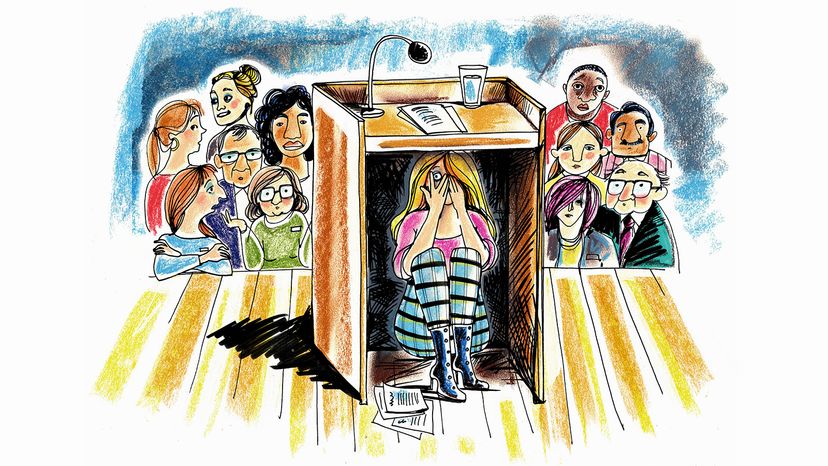
Your heart quickens, your hands turn clammy and your brain dissolves into oatmeal. Those killer opening lines that you had planned? They've all but vanished with no evidence that they ever existed, just like your all-day deodorant and any sense of cool that you may have temporarily summoned.
The classic — if undoubtedly way too flip and clichéd — deer-in-the-headlights look now is glued to your blank face. And all those people around the table in the conference room (or classroom, or auditorium) are doing the absolute worst thing that they could do right now.
Advertisement
They're staring. And waiting ... waiting ... waiting. For you. "'I can't wait to get off this stage," you say to yourself. "I just want to run and hide. This is not going well. I'm going to bomb.'"
That, says Scott Compton, a professor in psychiatry and behavioral sciences at the Duke University School of Medicine, is exactly what those with a fear of public speaking are thinking. And that, of course, is exactly the problem.
Advertisement
